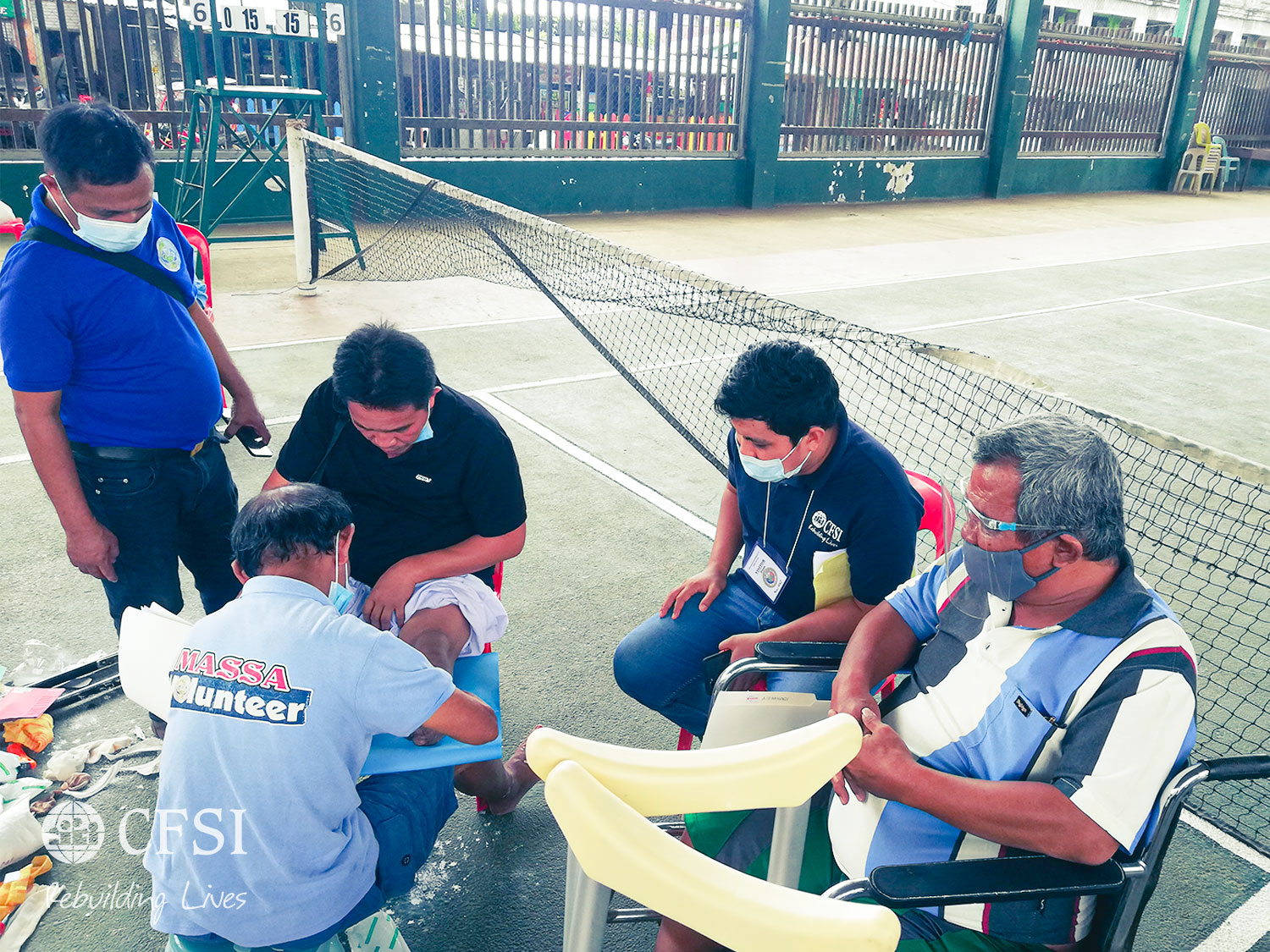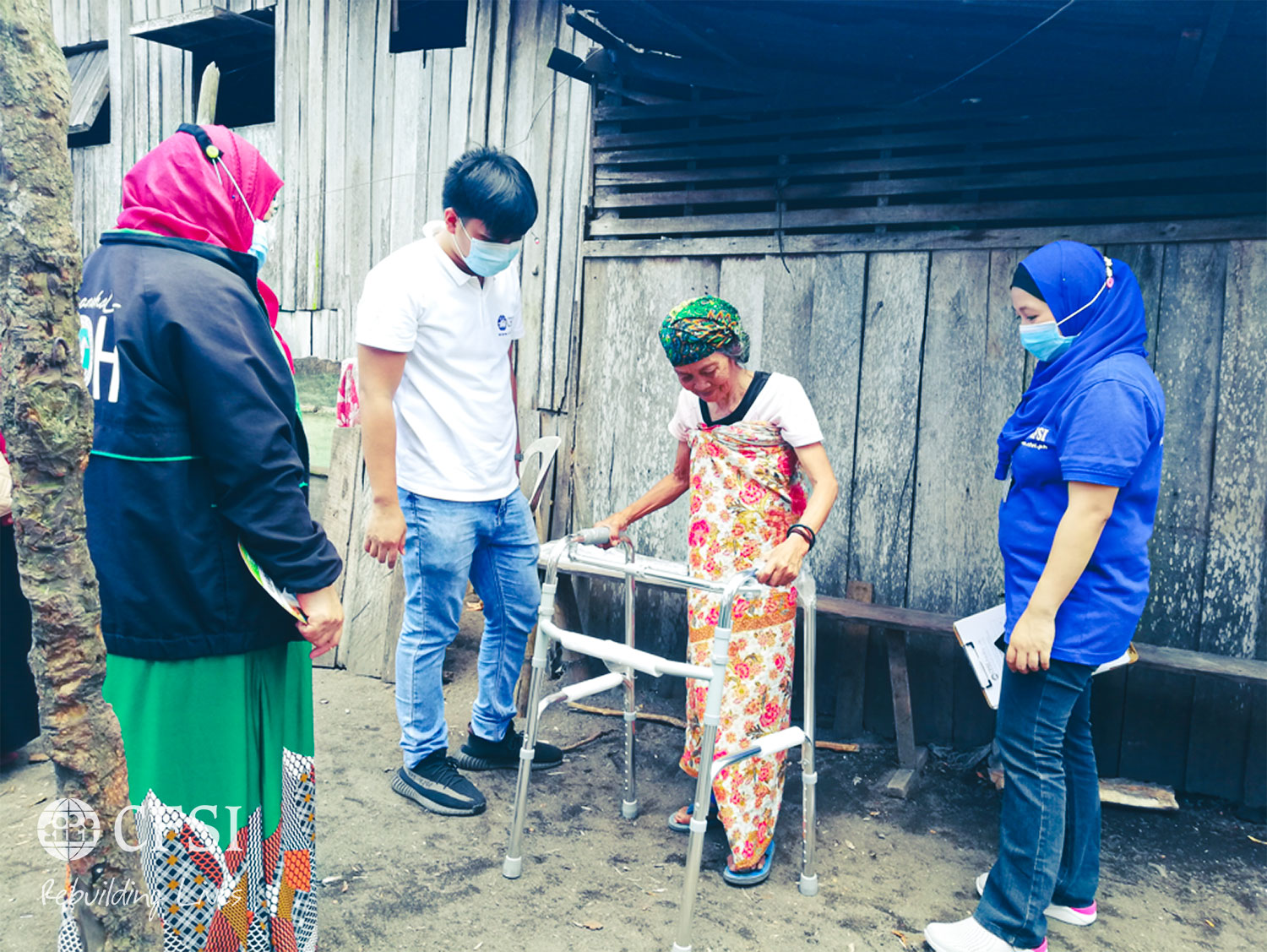The story was originally published on pages 30-31 of Task Force Bangon Marawi 2020 Magazine.
Since 2017, Community and Family Services International (CFSI) implements the Marawi Recovery Project (MRP) to continue rebuilding lives.
The project, with funding support from Australian Government’s Department of Foreign Affairs and Trade (DFAT), continues to provide protection, psychosocial, and livelihood support to at least 6,500 households (32,500 persons) affected by the Marawi Crisis.
As of 30 November 2020, CFSI has assisted 3,868 persons for civil documentation and have a Certificate of Live Birth (COLB) from their respective Local Civil Registrars (LCRs).
CFSI also provided case management services to 604 persons. Some 463 persons with special needs received assistive devices such as wheelchairs, commode chairs, crutches, and nebulizers. CFSI also provided urban-based livelihood support packages such as carinderia sets, skills-based sets, and farming tools to 3,696 affected households.

CFSI MRP referred project participants who have amputated legs to the Marian Foundation Assistance for Spiritual And Social Achievement (MASSA) for leg measurement and provision of artificial prosthesis, 19 November 2020.
Providing protection services to the community
Jimmy Bantilan, 47, is among the Marawi Siege survivors who is starting a new life in Boganga Transitory Shelter in Marawi City. They became project participants of MRP and two of his seven children were assisted for birth registration. Upon receiving their COLBs, Jimmy was able to enroll his children to
school.
He and his wife have also participated in the Community Rights Awareness Orientation (CRAO) where they learned about exercising their rights. According to Jimmy, they also became familiar with various agencies and institutions that are accountable for delivering certain protection services.
To further support the civil documentation of families like Jimmy’s, CFSI provided equipment to Local Civil Registrars (LCRs) to ensure efficient production of COLBs. The LCRs from the six covered municipalities of MRP in Lanao del Sur received 15 desktop computers, 12 printers, 15 universal power supplies (UPS), and seven steel cabinets.
Ensuring psychosocial well- being
Hasnor, one of the project’s child beneficiaries in Piagapo town of Lanao del Sur, was born with a cleft palate. As part of MRP’s psychosocial component, CFSI assisted him to undergo an operation in June 2020. After recovering, Hasnor’s family noticed that he has become more motivated in school and has been able to interact better with his playmates.
Hasnor was endorsed for operation to Amai Pakpak Medical Center (APMC), one of CFSI’s partners to deliver health and psychosocial services to MRP project participants. Other partner agencies and institutions include Médecins Sans Frontières (MSF), the health offices and social welfare and development offices of the city and the province, the Ministry of Social Services and Development of the Bangsamoro Autonomous Region in Muslim Mindanao, and the Rural Health
Units (RHUs) where the project operates.
CFSI project participants with chronic diseases were referred to MSF and the city health office while those with mental health conditions were referred to the provincial health office. Individuals with mental health conditions became regular clients of the provincial health office and were under monitoring for treatment and progress.
Psycho-education was also given to parents and caretakers of persons with special needs (PWSNs). For Persons with Disability (PWD), referrals were sent to the City Social Welfare and Development Office for the issuance of PWD ID and become recipients of PWD services and allowance.
When the COVID-19 pandemic struck the country in March 2020, CFSI continued to deliver essential life-saving support to communities. For instance, CFSI conducted Community Health Education in various municipalities of Lanao del Sur and distributed Personal Protective Equipment (PPEs) to various RHUs through the Public Health Support Project funded by the Embassy of Switzerland in Manila.

All these partnerships with different agencies and institutions are CFSI’s effort to ensure the psychosocial well-being of the project participants and prevent them from further hardships and sufferings.
The family of Asnawi Sumali and Johana Marauna is one of the households that benefited from the MRP and was able to recover economically through the project’s livelihood support.
They used to own a small sari-sari store that sold cheap snack foods when they were still in Sarimanok Tent City. After receiving a refrigerator and grocery items livelihood support from CFSI, they started earning as much as Php 500 a day and were able to acquire their own coconut grater and sewing machine to have more means to get income.
In this time of COVID-19 pandemic, CFSI also took other initiatives to support those whose livelihood was affected by the health crisis. CFSI partnered with the Office of Provincial Agriculture of Lanao del Sur to distribute high-value crops and varying vegetable seeds to 1,000 MRP project participants.
Project participants who are pedicab drivers also received PhP1,000 cash subsidy in partnership with the Marawi Traffic Management Group.
Moreover, CFSI started the community-based support to livelihood (CBSL) in December 2020 where 15 community projects will be implemented in the municipalities of Butig, Lumbayanague, and Masiu.
These community projects include farm-to-market road, footbridge, box culvert, two warehouses, pathway, concrete road, and post-production assets such as corn, mobile sheller, rice miller, coffee grinding machine, power tiller machine, and floater tiller machine.
To prevent the spread of COVID-19, handwashing facilities, water systems, and toilet facilities will also be installed and rehabilitated.
CFSI will continue to serve and rebuild lives in Marawi City, the municipalities of Ditsaan-Ramain, Marantao, Piagapo, Butig, Lumbayanague, and Masiu, and other vulnerable persons (OVP) sites until December 2021. #

